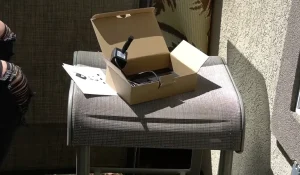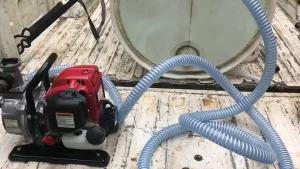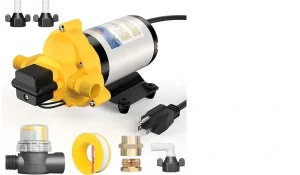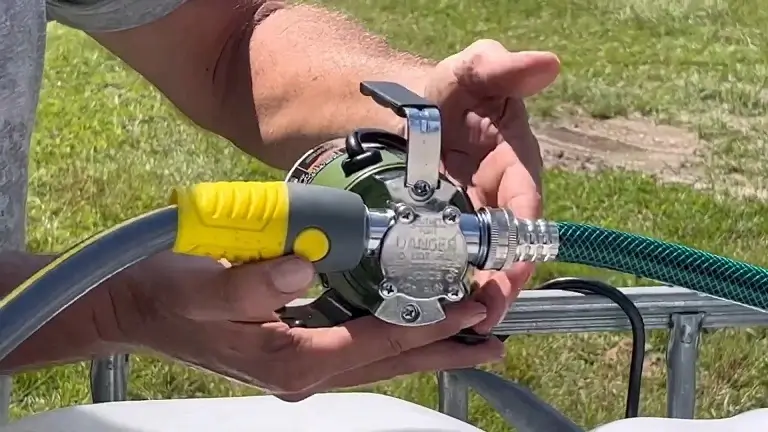The small water pump is small, sleek, and compact. We can easily store them in small spaces, so they take up less space than larger pumps. This makes them perfect for use on small farms or on small construction sites where large equipment is not needed.
If you are looking for a small pump, that will get the job done without taking up too much room. We use water pumps for many reasons. The most common water pump is the centrifugal small water pump, which is often seen in residential homes and farms. This type of water pump has a spinning impeller that pulls water through it to be distributed elsewhere.
If you want to know more about this specific equipment, keep reading! We’ll give you some basic information on what they are and how they work.
Types of Small Water Pumps
1) Centrifugal Pumps
- Description and working principle
- Common applications (e.g. irrigation, aquariums, water features)
2) Submersible Pumps
- Description and working principle
- Use cases (e.g. water transfer, dewatering, fountains)
3) Diaphragm Pumps
- Description and working principle
- Applications (e.g. chemical transfer, fuel dispensing)
4) Peristaltic Pumps
- Description and working principle
- Uses (e.g. medical devices, laboratory equipment)

Small Water Pump Key Features and Specifications
- Flow rate
- Pressure/head
- Power consumption
- Noise level
- Compact/portable design
- Materials of construction
Small Water Pump Electric
Small water pumps are ideal for homeowners who want to save money on their electric bills and don’t need a large pump. They will also work well in farming communities where livestock depends on fresh drinking water. The small size of these pumps means someone can install anywhere them, so you won’t have to drill through your wall or flooring when you move it. Also, the compact design is perfect for tight spaces like basements and crawlspaces.
Every home needs water. Whether it’s for drinking, cooking, or cleaning, you need to have a reliable source of water in your house. But what if the mainline is broken? Or there was a disaster, and you lost power? That’s when having an emergency pump system comes in handy!
They designed emergency pumps for use with small household systems, like those found in RVs and mobile homes. We can also use them as backup sources of water during emergencies, such as hurricanes or earthquakes. The small water pump 12v is used to move water from one place to another. Pumps are used to make water go through a pipe or hose.
There are two types of pumps: submersible and external. Different types of electricity have different benefits. It depends on what you want your final product to look like and how much power you need.
Are you find the best small water pump with a hose to meet your needs? We work hard to provide quality information for plumbers, homeowners, and farmers alike. A small water pump with a hose attached to it is an easy and efficient way to get rid of excess water from your home. This could be done for many reasons, including cleaning up after a leaky pipe or flooding, washing off dirty hands or tools, or watering plants.
We can even use it as part of our emergency preparedness plan in case the power goes out and you need water at hand (although this would require extra storage space). If you don’t already have one on hand for such situations, it’s important to know how they work before you need them!
A small water pump is a great way to speed up your work. The outside of the sink will get cold, but you’ll be done in no time. A small water pump is a popular tool for many types of work. For plumbers, a small water pump can provide pressure and flow to sinks or toilets that might not have been able to use the city’s major supply. A farmer could also use a small water pump for irrigation.

For many homeowners, the idea of a small water pump for their sink doesn’t even cross their minds. But what if you needed a new system and your budget was tight? It’s worth considering these smaller systems – they’re perfect for those who have little space to work with. Here are some features that make these sinks great:
Someone can install them in places where there isn’t any room for a traditional installation because they take up less space than other models.
The water flow is more concentrated, which means faster processing times and less waiting around while the sink fills up.
You’ll find them cheaper than most other brands in the market today! When you consider all.
Do you have a fountain? If so, is the pump powered by electricity or do you need to manually turn it on? A small water fountain pump can help keep your pond clean and running. There are many pumps that run off electricity. Some pumps require more electrical power to operate than others. You’ll want to consult with your electrician about which one will work best for your needs if you’re looking into an electric-powered pump.
If you don’t use any other appliances in this area of the house, then something like a submersible well pump may be enough. The submersible well type requires less energy than other types because it’s near the ground level where it can draw from its own source.
Aquariums are a great way to add natural beauty and interest to any home. A small water pump for an aquarium provides the ideal amount of circulation needed in order to keep the water in your tank looking crystal clear.
However, when deciding on a small water pump for an aquarium, you need to consider size and noise levels as well as how often it will be used. If you have over one fish tank or plan on using your pump every day, then a larger model would be best suited for you. For those with only one tank or who don’t want excess noise from their pump, a smaller model might work better.
I have been reading a lot of questions lately about small water pumps for portable. I am an expert plumber with over 30 years of experience, so I know what is best. One question that has come up frequently is whether it is beneficial to purchase a small pump for your portable needs. The answer to this question depends on why you are using the portable pump in the first place and if you need large amounts of water delivered at one time, such as filling pools or ponds.
If you use your pump mainly to irrigate plants and canals or maintain fish tanks, then a smaller unit will be perfect because they cost less money and take up less space than larger units. No matter which size you choose, though, make sure that the pump you get is compatible with the source of water that will feed it.

FAQ for Small Water Pump
What is the small water pump?
We use pumps in many places. They can be big or small. But mostly, they are used for projects like building dams and wells. The pumps use little electricity, so your electric bill won’t go up. This is a great thing! Not only are these pumps powered by electricity, they can also be powered by hand. These pumps are perfect in emergencies when there is no power.
What is the cost of a mini water pump?
This handy tool is worth having around and will come in handy at some point! The cost of one varies by brand and model, but you should expect to pay somewhere between $20-$150 dollars, depending on which type you get.
How does a small water pump work?
A small water pump uses a spinning impeller, driven by an electric motor or engine, to create suction that draws in water through the inlet and then forces it out through the outlet, enabling the movement of water.
How to clean a small water pump?
Please follow step by step to clean your pump:
- Unplug or turn off the power supply.
- Disassemble the pump and remove any debris or buildup.
- Clean the impeller, housing, and other components thoroughly.
- Reassemble the pump and ensure all parts are properly aligned.
- Test the pump to ensure it’s functioning correctly.
What size pump do I need for a small water feature?
This is a brilliant question because there are many factors that go into this decision. So let’s get started! First, you will want to know how deep the water source is. If it is less than 10 feet deep, then you can probably use a 1/2 hp or smaller pump.
But if it is over 10 feet deep, go with something in the 3/4 hp range instead. Depending on what kind of waterfall or fountain design you have (or any other features), these things will also affect your choice of pump size.
Conclusion
Hope this post has helped you understand the different water pumps available and what they are good for. If not, please leave a comment or reach out to us on social media! Our team is here to help with all your small water pump needs. We also want to hear from you!

